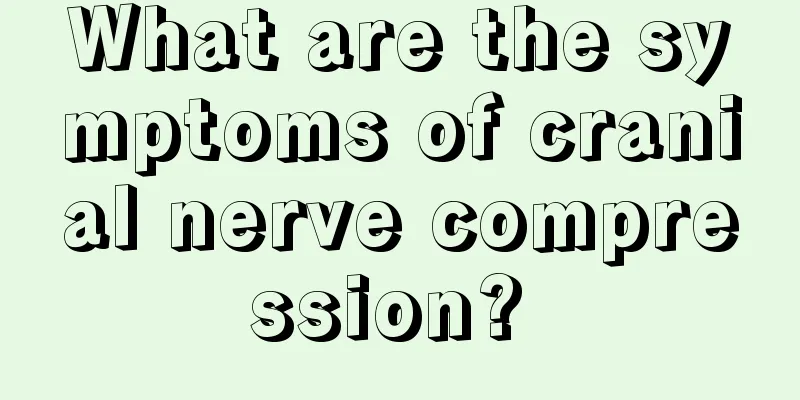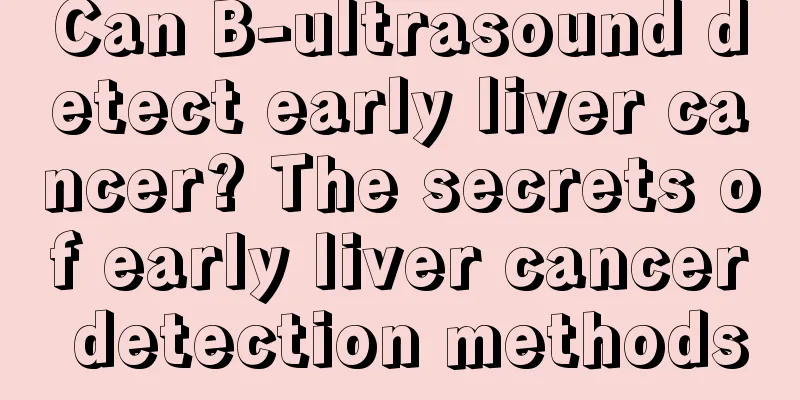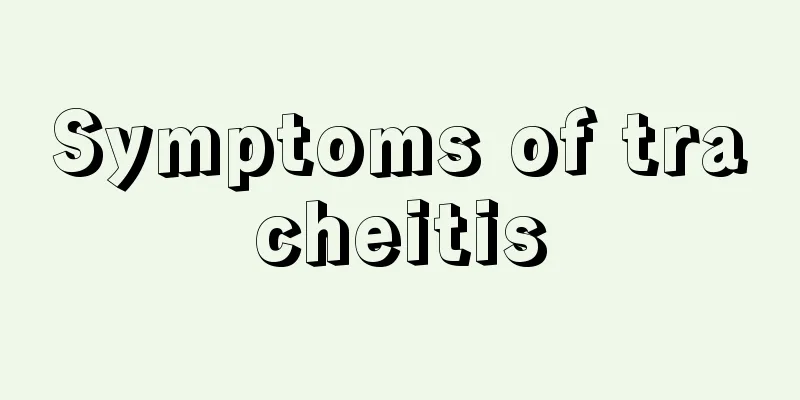What are the symptoms of cranial nerve compression?

|
Brain diseases are very serious because the brain controls people's physical behavior, language, and the movements of their limbs. Therefore, we cannot ignore brain-related diseases. Once we suffer from some abnormal conditions, it is recommended to seek timely treatment. Cranial nerve compression is a disease related to the brain. So what are the symptoms of cranial nerve compression? Because we can determine which brain nerves are compressed, it is important to find the corresponding treatment method. So let’s find out below! Except for the olfactory and hypoglossal nerves, the other 10 pairs of cranial nerves may be damaged. The most commonly affected are the optic nerve, oculomotor nerve and abducens nerve. It is usually bilaterally symmetrical but can also be unilateral, manifesting as symptoms such as visual impairment and diplopia. Symptoms of cranial nerve damage: such as decreased vision, double vision, drooping eyelids, eye deviation, facial numbness, crooked mouth and eyes, drooling from the corners of the mouth, decreased hearing, difficulty swallowing, coughing when drinking water, abnormal pronunciation, etc. It may be caused by tumors of the brainstem, cranial nerves, and lesions in adjacent areas of the skull base, such as aneurysms, meningiomas, chordomas, craniopharyngiomas, pituitary tumors, and schwannomas. Common causes of the disease include intracranial hematoma, anterior cranial fossa, sellar area and parasellar tumors, trauma, increased intracranial pressure and hydrocephalus, senile olfactory atrophy, various poisonings and infections, etc. Certain temporal lobe epilepsy and psychosis. The main manifestations of olfactory nerve damage are hyposmia, anosmia, olfactory hallucinations and olfactory hypersensitivity. Among skull base tumors, olfactory groove meningioma is the most common. Patients often suffer from chronic headaches and mental disorders. Loss of smell on one or both sides due to compression of the olfactory nerve. As the tumor grows, symptoms of intracranial hypertension develop, and brain CT can often confirm the diagnosis. Certain central nervous system diseases accompanied by dementia (Alzheimer's disease, Korsakoff psychosis, hereditary chorea, etc.) may cause olfactory nerve atrophy and lead to bilateral hyposmia. This type of patient is common in middle-aged and elderly patients and may have a positive family history. Brain atrophy is common in cranial CT and MRI. (IV) Craniocerebral jury: Fracture of the anterior cranial fossa and contusion and hematoma of the basal surface of the frontal lobe can cause tearing and compression of the olfactory nerve and lead to loss of smell. The diagnosis can be confirmed based on a clear history of trauma, head X-rays, CT scans, etc. The above is about the symptoms of cranial nerve compression. We have learned about some different symptoms. Because cranial nerves are a relatively complex structure, cranial nerve compression will cause problems in these components, vision will decrease, and the sense of smell will be affected. Therefore, this problem cannot be ignored and you must go to the hospital for medical examination. |
<<: How many minutes does it take for a pregnancy test to give results?
>>: What should I do if I suffer from insomnia due to staying up late for a long time?
Recommend
What is the cure rate of lymphoma and what are the treatments?
What is the treatment rate for lymphoma? What tre...
Surgical treatment of pancreatic cancer
Surgical resection is the most effective way to t...
Should the longan be peeled for stewing soup
Longan is a relatively nutritious food. Many peop...
How many years can a liver cancer patient live
Liver cancer is a common malignant tumor in our l...
What should not be eaten with papaya?
Papaya tastes sweet and is rich in nutrients. It ...
Symptoms after intervention
In our lives, many patients with serious illnesse...
Fat man's inner thigh is black
If you are too fat, it will have a great impact o...
Gold standard for teratoma diagnosis
Gynecologists say that many people think that ova...
What is the reason for pain behind the knee
If you have pain behind the knee, you should cons...
What are the tips for preventing cervical cancer? Common methods for preventing cervical cancer
Prevention of cervical cancer is very important. ...
What to do about swollen legs during menopause?
As the human body ages, its various functions als...
Does elbow fracture require surgery?
The elbow joint is a very important joint in our ...
The principle of cola cough relief
If a cough is not treated in time, it will not on...
How to choose a specialized hospital for uterine cancer
Everyone knows that uterine cancer is a stubborn ...
What is the method of making hydroponic nutrient solution
Due to serious environmental pollution, many area...









